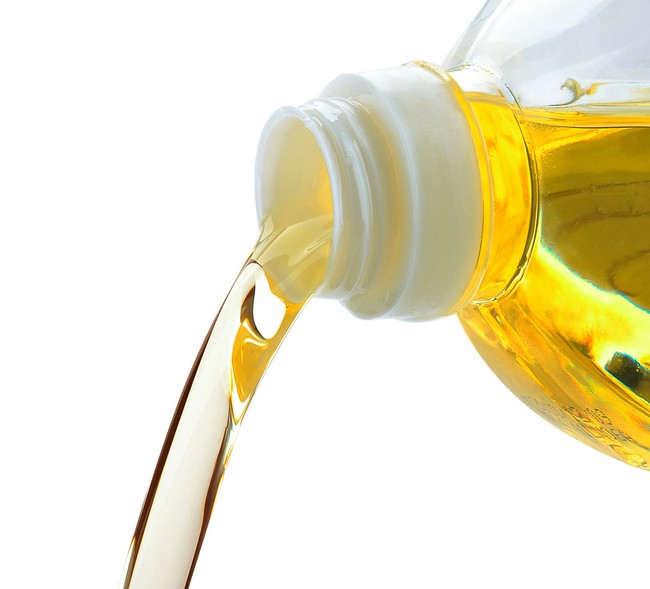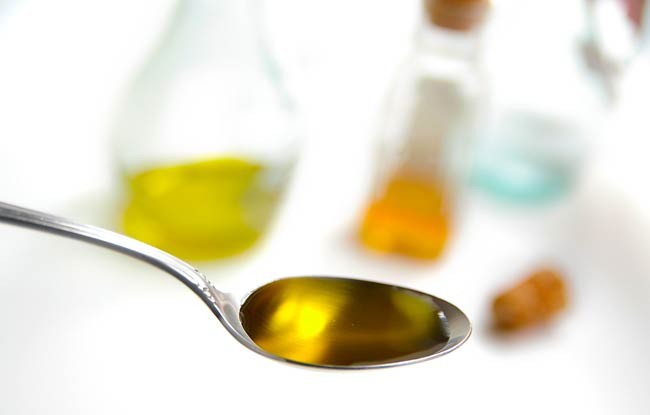- Make It Yourself Lavender Heart-Shaped Bath Bombs!
- 20 Things You Never Knew About “Down There”
- 12 Best Foods For Those Suffering From Arthritis Pain
- 12 Personal Hygiene Mistakes Almost Everyone Makes (Mom Never Told You About #4!)
- 15 Medicinal Plants And Herbs From The Cherokee People
- 12 Mind-Blowing Benefits Of Drinking Coconut Water During Pregnancy
- 12 Outstanding Winter Foods That Won’t Fatten You Up Like A Christmas Turkey
10 Dangers You Should Know about Canola Oil

Photo credit: bigstock
Canola oil, popularly used at those all you can eat buffet bars, can have some seriously negative effects on your health, especially that GMO canola oil that Monsanto manufactures. Canola oil is mixed up into those creamy salads such as potato and macaroni salads; yes, even the ones you see at Whole Foods or Farm Fresh. A little tuna salad, some make your own salad with those great dressings, and take them home in those little plastic containers made with BPA… but do you know exactly what it is you’re taking home? Let’s set the record straight and tell you about the health dangers of canola oil, and a few things you didn’t know about canola oil.
1. There is No Canola Plant
One of the first things you should know is that there is NO canola plant, such as corn, soy, or sunflower. Many people are surprised at this fact. They simply assumed that this was just another type of vegetable oil. It’s true that canola oil comes from rapeseed, but it’s not simply about pressing seeds and extracting the oil; because rapeseed oil is so terribly smelly, it must be chemically processed with hexane. Hexane is the vapor portion of gasoline. Is hexane flammable? Yes it is. Rapeseed oil, before it is processed, contains omega-3 fatty acids. After it is processed and it goes through a deodorizing process, it changes those omega-3s into trans fats.
2. The FDA says it’s Dangerous
It’s true. In 1985 the FDA banned using canola oil in formulas for infants because it retards the baby’s growth. So it appears that for the past 25 years, canola oil has been determined to be unsafe for babies, but perfectly fine for the rest of us.
3. Short Shelf Life
Canola has very high sulfur content and goes bad very quickly. This can make those with allergies, asthma, or bronchitis much more sensitive and make their symptoms worse. Also, since canola oil has been chemically deodorized, it has almost no taste and no smell, so how will you know when it goes bad?
4. It’s a Man Made Oil
Were you aware of the fact that canola oil was created by a scientist at a laboratory in Canada? It’s a GMO food; the genes of the rapeseed plant have been bred so that they make less of the toxic compound erucic acid. This same scientist worked for a company called Calgene, which was later bought by – you guessed it – Monsanto. By the way, just for your information, this same scientist also developed Roundup. Read more about how to avoid GMOs.
5. Health Issues
Canola oil depletes your levels of vitamin E, as well as raises your triglyceride levels more than 40 percent. In studies, canola oil shortens the lifespan in animals. Human studies have shown that it lowers the platelet levels in the blood and causes an increase in lung cancers. Find out a guide to cooking with healthy oils.
Continue to Page 2

Photo credit: bigstock
6. Dangerous Levels of Trans Fats
There are no safe levels of trans fats, the Harvard School of Public Health said in a report decades ago. However, the FDA says that if there are 500 mg or less in a half cup, then it’s a “safe” level and manufactures can say that there are “NO trans fats!” However, when you are eating pre-made food, such as those from a bakery or food bar, who measures out that half cup per serving? What if you are getting a half cup of canola oil for each meal you are eating every day?
7. Degenerative Diseases
Canola oil makes the membranes of the body become more rigid, which can trigger degenerative diseases in humans. Also, since canola oil molds quickly, it inhibits the function of enzymes. Canola oil is an open door for free radicals, which undermine the natural antioxidants in healthy foods and are linked to an increase of many diseases.
8. The Fast Food Factor
Did you see recent commercials or magazine ads from popular fast food chains saying that they were getting rid of their trans-fat oils and switching to canola oil? This is the old switcheroo, folks, where it sounds as if they are doing something healthy for you when they aren’t. They are simply choosing from the lesser of two evils.
9. There is No Such Thing as Organic Canola Oil
It’s true that rapeseed plants smell so terrible, even the bugs don’t want it, so there’s no need to use pesticides, but that doesn’t mean it’s organic. Rapeseed must be processed with chemicals in order to make it palatable. You may have seen places like Whole Foods advertise that they are using “organic canola oil.” How is that possible when canola oil is made with hexane? Someone should ask them how this is possible. There is no such thing as organic canola oil, friends. See the infographic on choosing between organic and conventional eating.
10. Canola Oil is a Hydrogenated Oil
Even if you don’t pay much attention to mainstream media, you’ve probably heard that hydrogenated oils are bad for you. Besides the deodorizing process, rapeseed must go through the process of degumming, bleaching, and refining of the oil. Although they go to great lengths to hide it, canola oil IS hydrogenated oil, which removes almost any nutritional value, while changing its basic form into trans-fats. There have been no long term studies done on GMO plants or this GMO canola oil but smaller studies have shown that this oil can cause some of the same health problems that other GMO plants cause.
If you are looking for a healthier option, use grape seed oil or coconut oil and make your own salads so you know exactly what they are made of. Both coconut oil and grape seed oil can withstand high heat, so you can also use them when cooking. Organic extra virgin olive oil is also very good for you, but it can’t tolerate high heat. Any of these, however, are better choices for you than canola oil.
Sources:

































Ibrahim Aziz
Jan 9, 2018 at 11:42 pm
http://www.cookers.com.au/ is good oil if you want to avoid all the health traps of canola, not to mention the clean up and fumes!